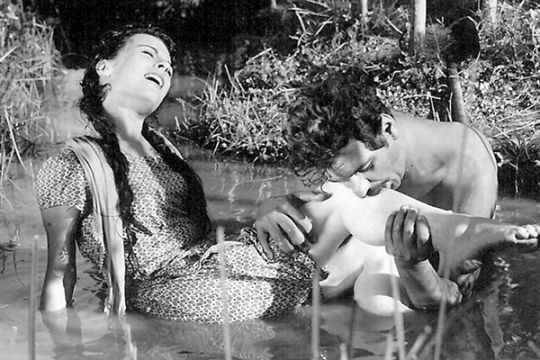Dry Summer

Synopsis
A brutal naturalist melodrama, Metin Erksan’s masterful Dry Summer, underwent decades of suppression by Turkish authorities: an arid fate for one of the most exciting films of the 1960s. Viscerally tactile, unsparing, and even on occasion outright lurid, Dry Summer has been described by filmmaker Fatih Akin as "one of the most important legacies of Turkish cinema."During a particularly dry rural Turkish summer, a group of local workers enters into a dispute with a landowner when he decides the construction of new irrigation infrastructure must first and foremost service his own property. Wholly rapacious, the landowner foments a private war with his own kin after the brother takes a bewitching young wife. The battle between the factions plays out in stunning set-pieces: a pursuit with pistols amidst grass-stalks and dam-water before the setting sun evokes elements of Renoir (Toni), Ford (The World Moves On), Bergman (The Virgin Spring), and Shindô (Onibaba), while a scene set in a brush thicket wherein the landowner and his aggressors fight it out hatchet-and-club provides drama at least as exciting and gasp-inducing as the climax of Akira Kurosawa’s Seven Samurai.
Dry Summer’s sweat-dappled tone and baked images of promenade and labour recall Mexican-period Buñuel as much as aspects of mid-’50s Italian commercial melodrama and, via the film’s backdrop of agrarian agitation and its low angles – which effect a figural relief against blazing, albeit greyish mid-contrast summer skies – post-montage Soviet agitprop.